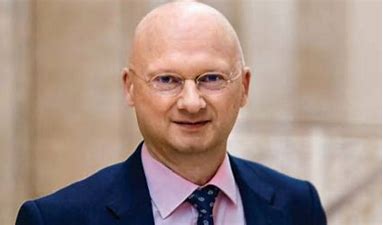Following the exit of Mauritius from the grey list of the Financial Action Task Force (FAFF) last week, the president of the global money-laundering watchdog since July 2020, considers that Mauritius has strengthened its capabilities to fight money laundering. He stresses that the Mauritian authorities should ensure that money-laundering offences are a priority and be dealt with in a timely manner. The deputy director-general of Germany’s finance spoke to l’express» from Paris.
Mauritius has come off the FATF grey list. Why is this important?
Money laundering fuels serious crime and terrorism. It harms societies by enabling a wide range of criminal activity such as drugs and arms trafficking, human trafficking and terrorist attacks. The government of Mauritius is aware of these dangers and this month achieved a major milestone by completing a reform programme to crackdown on illicit finance. I congratulate the Mauritian authorities on the enormous amount of work they have undertaken to achieve this result.
How big an achievement is this?
There is good reason to celebrate Mauritius’ progress. Since being listed in 2020 on the Financial Action Task Force’s (FATF) increased monitoring list, the so-called grey list, Mauritius has succeeded in improving its implementation of anti-money laundering and counter-terrorist financing controls. Not only has Mauritius made legal and regulatory changes, it has also significantly reformed the way its anti-money laundering and counter-terrorist financing system works in practice. These changes represent a real increase in Mauritius’ effectiveness in detecting and investigating these crimes and preventing them in the first place.
What specifically has Mauritius achieved?
It has made a number of achievements, including enhancing the capacity of investigative authorities to detect money laundering and corruption. Mauritius has significantly increased domestic and international cooperation between governmental authorities. And it has redoubled efforts to investigate and prosecute money laundering, including through parallel financial investigations for cases involving drug trafficking, tax crime, and fraud. These are just some of the reforms that Mauritius has implemented to prevent serious crime and terrorism and help harden the defences of its financial system.
Mauritius had been on the FATF grey list since February 2020. What was the process to come off?
Up until this month, Mauritius was one of more than twenty countries included on the so-called FATF grey list due to weaknesses in their ability to fight money laundering and terrorist financing. Following the comprehensive actions taken by the Mauritian authorities, and a successful on-site visit to Port-Louis by a FATF team to verify progress, Mauritius has been removed from increased monitoring. This achievement only happened due to the hard work and determination of officials who recognised that changes needed to be made. The Mauritius government has given a clear and robust commitment to continue to take action to strengthen its systems. As the global money laundering and terrorist financing watchdog, the FATF welcomes this commitment. The FATF’s regional partner in the region, ESAAMLG, will continue to monitor the country’s progress and assess whether new measures are in line with the FATF’s international standards.
What are the biggest illicit finance threats to Mauritius now?
The threat from criminal and terrorist groups is constantly evolving, so all countries need to remain vigilant. Going forward, I strongly encourage Mauritius to continue to prioritise the fight against money laundering and terrorist financing. They should ensure that money laundering cases are a priority and dealt with in a timely manner. It is imperative for authorities to ensure that all sectors appropriately address the risks identified in the country’s National Risk Assessment. Authorities should also coordinate between agencies to identify potential challenges to sustaining the fight against money laundering and terrorist financing.
Tackling illicit finance is a complex, global and ongoing issue, what is next for Mauritius?
This work is challenging. But I expect the Mauritian government to continue to take the necessary steps and I appreciate the political will demonstrated by Mauritius’ leaders. I also welcome the assurances of the Prime Minister, Minister of Finance, Central Bank Governor and other high-ranking officials for their support in this area.
I want to warmly thank the Mauritius government and the country’s anti-money laundering professionals who strive every day to prevent serious crime and hold offenders accountable. I know they will continue to work tirelessly to develop and enhance their capabilities. By doing so, Mauritius will ensure that corruption, drug trafficking and fraud are not profitable enterprises and that terrorists cannot raise, move or use funds to carry out attacks, whether in Mauritius or elsewhere. This will help make the lives of people in Mauritius safer and fairer, and help create stronger, sustainable, inclusive economic growth.
Lexpress
